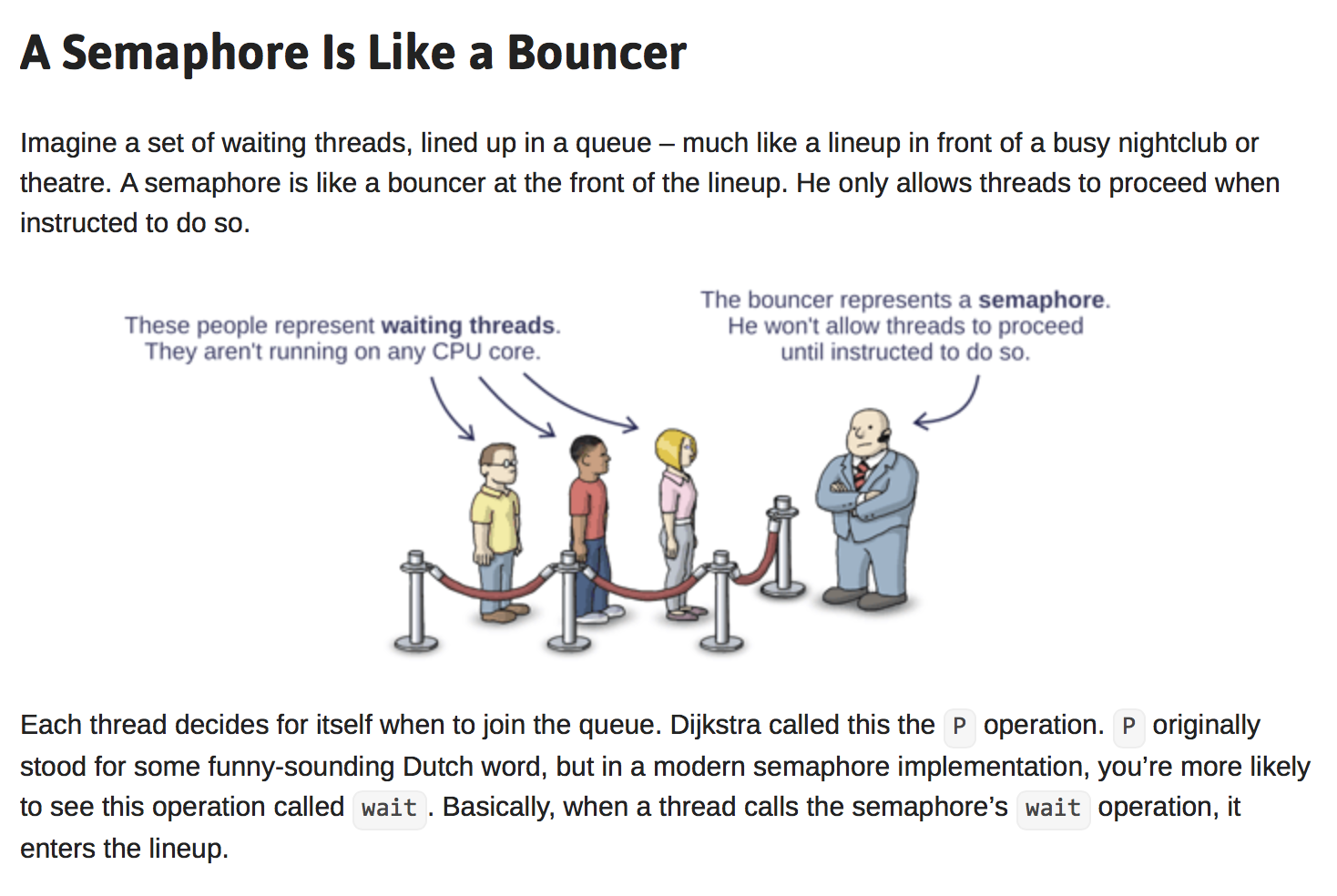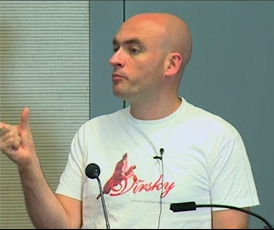Semaphores are Surprisingly Versatile --Jeff Preshing
An interesting approach on how semaphores could be used in Modern C++ multithreaded programming:
Semaphores are Surprisingly Versatile
From the article:
In multithreaded programming, it’s important to make threads wait. They must wait for exclusive access to a resource. They must wait when there’s no work available. One way to make threads wait – and put them to sleep inside the kernel, so that they no longer take any CPU time – is with a semaphore.
I used to think semaphores were strange and old-fashioned. They were invented by Edsger Dijkstra back in the early 1960s, before anyone had done much multithreaded programming, or much programming at all, for that matter. I knew that a semaphore could keep track of available units of a resource, or function as a clunky kind of mutex, but that seemed to be about it.
My opinion changed once I realized that, using only semaphores and atomic operations, it’s possible to implement all of the following primitives:
- A Lightweight Mutex
- A Lightweight Auto-Reset Event Object
- A Lightweight Read-Write Lock
- Another Solution to the Dining Philosophers Problem
- A Lightweight Semaphore With Partial Spinning ...


 If you're in the San Francisco Bay area, you might be interested in this from IBM:
If you're in the San Francisco Bay area, you might be interested in this from IBM: While we wait for CppCon 2015 in September, we’re featuring videos of some of the 100+ talks from CppCon 2014. Here is today’s feature:
While we wait for CppCon 2015 in September, we’re featuring videos of some of the 100+ talks from CppCon 2014. Here is today’s feature: